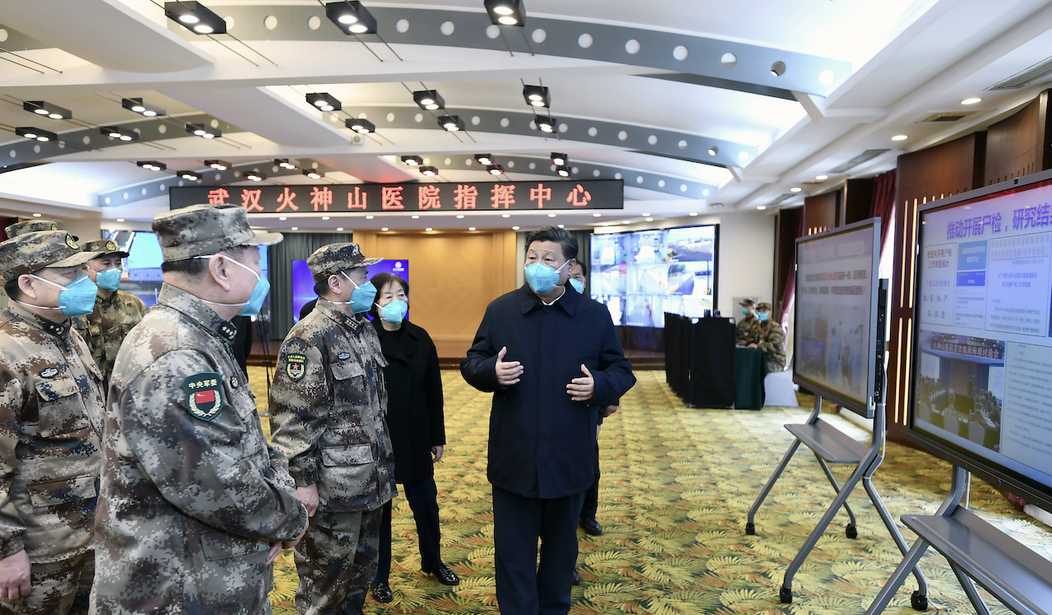China took full advantage of the world’s preoccupation with the pandemic they caused to destroy democracy in Hong Kong. Now that they have one major domestic problem solved, they are turning their attention to their biggest unfinished business: bringing Taiwan to heel.
In more than 70 years, Beijing has never wavered an inch in its insistence that Taiwan is a province of China. This has made for an interesting diplomatic dance by the United States, which technically recognizes Taiwan as an independent state but rarely treats them like one. Donald Trump sought to change that by selling arms to Taipei and thumbing his nose at China by sending high-level representatives of the U.S. government to the island.
China fumed and raged but did little to retaliate. But with the Hong Kong “problem” solved, China will now turn its full attention and focus its power on crushing the resistance to its rule in Taiwan.
It’s not the final, titanic clash that Taiwan has long feared, with Chinese troops storming the beaches. Instead, the People’s Liberation Army, China’s two-million-strong military, has launched a form of “gray zone” warfare. In this irregular type of conflict, which stops short of an actual shooting war, the aim is to subdue the foe through exhaustion.
Beijing is conducting waves of threatening forays from the air while ratcheting up existing pressure tactics to erode Taiwan’s will to resist, say current and former senior Taiwanese and U.S. military officers. The flights, they say, complement amphibious landing exercises, naval patrols, cyber attacks and diplomatic isolation.
China’s military buildup has included speeding construction of top-of-the-line, state-of-the-art aircraft carriers, a new generation of carrier-based attack planes, and sophisticated landing craft that they regularly and publicly demonstrate close to Taiwan’s coast.
China has always played the long game with Taiwan but this is something different. It’s like the ancient Chinese game of “Go” — a game that can last for days — where China applies pressure in various places all at once looking to keep Taiwan off balance.
The risk of conflict is now at its highest level in decades. PLA aircraft are flying menacingly towards airspace around Taiwan almost daily, sometimes launching multiple sorties on the same day. Since mid-September, Chinese warplanes have flown more than 100 of these missions, according to a Reuters compilation of flight data drawn from official statements by Taiwan’s Ministry of National Defense. The data shows that in periods when political tension across the Taiwan Strait peaks, China sends more aircraft, including some of its most potent fighters and bombers.
These encroachment tactics are “super effective,” Admiral Lee Hsi-ming, who until last year was the commander of the Taiwanese military, told Reuters in an interview. “You say it’s your garden, but it turns out that it is your neighbor who’s hanging out in the garden all the time. With that action, they are making a statement that it’s their garden – and that garden is one step away from your house.”
Beijing insists it’s committed to “peaceful reunification” with Taiwan but its actions tell a different story. It has spent the last 20 years building up its forces until they are now close to being able to overwhelm the island and defeat any resistance before America can act. They will present this fait accompli to the world as simply taking back what they’ve claimed is theirs for 70 years.
Except during those 70 years, Taiwan has become an independent nation-state with its own system of laws, its own culture, its own political system — its own identity. Is that worth protecting? The Taiwanese people think so.
All that stands in the way of Beijing’s mastery of Taiwan is the United States.
Standing in the way of that dream is the United States. It would be catastrophic to America’s dominance in the region if Chinese forces took control of Taiwan, most military analysts believe, whether by gray-zone tactics or full-scale invasion. America’s global prestige and role as security guarantor in Asia would be shattered, they say.
Already, Beijing’s recent assertiveness, including its fortification of contested islets in the South China Sea, has galvanized an American-led response. The administration of President Donald Trump has been rushing new weapons into service and realigning U.S. forces in Asia to counter China. Regional powers Japan, India and Australia are tightening cooperation with the Americans.
Realistically, a strike by China to subdue Taiwan would be over before the U.S. could get organized. And with unlimited reinforcements in men and material just across the straits, it would be suicide for America to try and come to Taiwan’s aid.
It’s not even clear we could make China pay for her crimes diplomatically or economically. China has waited for the right moment. When Xi strikes it’s not likely he will have left anything to chance.
Venezuelan Opposition Boycotts Election, Handing Maduro a Cheap Victory










Join the conversation as a VIP Member